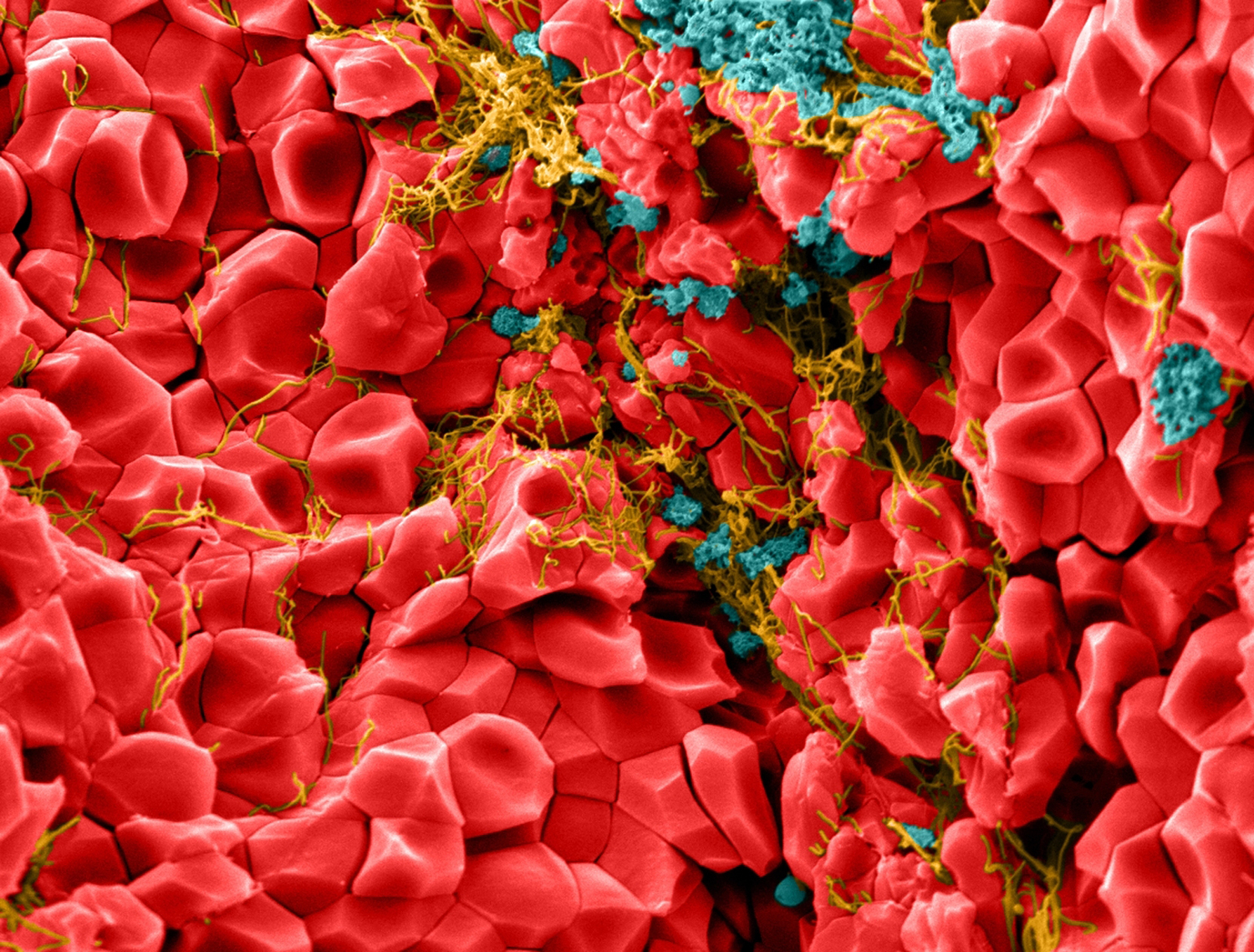
Everything posted by BldBnker
-
Medical Director approval for Least Incompatible blood for transfusion
Our pathologist (Blood Bank Medical Director) wants to approve each case of transfusing least incompatible units. He will often speak with the ordering physician to discuss benefits vs. risks involved. Once he has approved the transfusion of least incompatible for that patient, we do not need further approval unless something changes. So far, in my career, these patients have never reacted to the transfused blood. Usually, they were already hemolyzing their own blood and needed transfusion to correct very critically low H & H's.
-
Immucor Echo Life Expectancy
We have 2 Echoes. Our oldest is 9.5 years old and running like a champ! Our service rep is the best!
-
Transfusion for a group A2B with anti-A1 sickle cell disease patient
I just have a hard time transfusing red cells that yield a 1-2+ positive reaction at immediate spin (can't call that compatible :o) ). That being said, we do what our pathologist requires. I agree that O mothers delivering incompatible type babies have destructive IgG ABO antibodies. We still do Lui Freeze Elutions on all neonates with positive DAT's to identify the "culprit" antibody. I'm not sure many facilities continue to do that. Thanks for the references.
-
Transfusion for a group A2B with anti-A1 sickle cell disease patient
I would worry more about the Anti-A1 antibody than the low amount of Anti-A in the residual plasma of a B unit of packed cells. If the Anti-A1 is present at immediate spin, then it is probably IgM just like Anti-A and Anti-B that are naturally occurring (which cause HTR). We see these individuals occasionally and transfuse them with O blood (if it is an A subgroup with Anti-A1 antibody) and with B blood if its an A subgroup B individual with Anti-A1. The transfusions are successful. I worry more about having to give type incompatible platelets that have way more plasma than a unit of packed cells.
-
Transfusion for a group A2B with anti-A1 sickle cell disease patient
Why couldn't you give B blood (packed cells)? The Anti-A1 would be avoided and the blood would be compatible. AB is the "universal receiver" after all. Just curious.
-
Full Crossmatch for all Crossmatch Requests
No, Malcolm, we aren't! We are prehistoric but not that prehistoric! Ha! Just a 1 tube (glass tube, by the way) enhanced with LISS (Immucor ImmuAdd) and AHG. We also do crossmatches on the Immucor Galileo Echo.
-
Full Crossmatch for all Crossmatch Requests
Me too! Had one yesterday.....3 cell screen negative and one unit was incompatible. The DAT on the unit was negative too. Patient had an antibody to a low incidence antigen. Would it have killed them? Who knows, but I don't want my initials on that crossmatch tag! Yes, we are still "dinosaurs" at my facility and do full AHG crossmatches on all orders. Our transfusion reaction rate is VERY low! I hope to retire before we do immediate spin and heaven forbid, electronic xm! :o)
-
Antibody Screen before Issuing RhIg
We call the OB clinic for that patient and ask if and when prenatal Rhogam was given. We document that on the patient's record. Usually, prenatal Rhogam yields a weak Anti-D. We do most of the prenatal work-ups for out patients since the clinics use our lab. The initial antibody screen is usually negative. If there is a question about passive vs. active Anti-D, a Rhogam is given (to err on the side of caution).
-
Antibody Screen before Issuing RhIg
We perform a Type and Screen on all patients presenting to the Labor Room (just one per admission) even if there is a historical type. That is what is used to determine Rhogam candidacy. We don't do a "post-partum" Type and Screen. We perform a Fetal Screen (FMH) on a post-partum specimen.
-
Antibody Screen before Issuing RhIg
Dansket, I am not sure I understand your question. That is the standard AABB protocol. You perform an antibody screen to determine if the woman has already been immunized to the D antigen (ab screen neg for Anti-D). We are AABB accredited. There would be no need to give Rhogam if the patient already has Anti-D. Even if the patient receives a prenatal Rhogam, a postpartum Rhogam is required (if the baby is Rh pos) to provide adequate protection to the mother. We also perform Fetal Screens (FMH) tests to ensure that 1 vial of Rhogam is adequate. We probably have 4 or 5 patients a year that require additional Rhogams due to larger than normal fetal/maternal bleeds. Hope this helps!
-
Antibody Screen before Issuing RhIg
According to AABB Standard 5.30.2 part 2; "the woman is not known to be actively immunized to the D antigen." We perform an antibody screen, along with an ABO/Rh on a current sample before issuing a Rhogam. This is for ED patients and LD patients.
